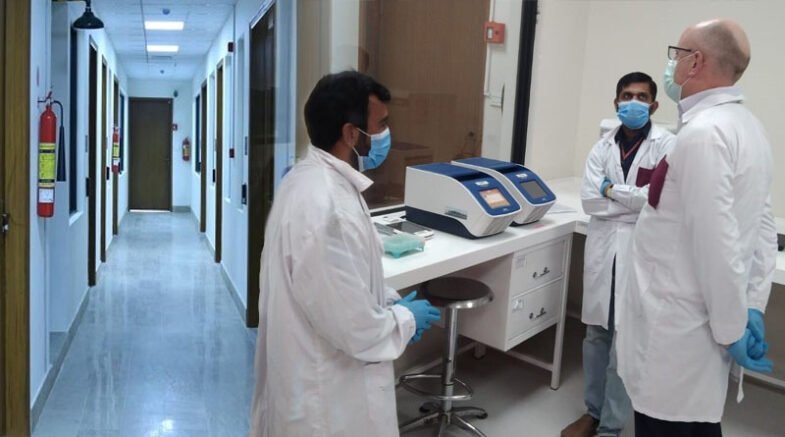The IoT facility aims to improve society by using cutting-edge technology to achieve new levels of performance and find solutions for regional issues.

Two new scientific laboratories will open in Pakistan thanks to a partnership between Coventry University and the National University of Sciences and Technology, academic institutions in the UK and Pakistan. The Human-Robot Interaction (HRI) and Internet of Things (IoT) laboratories are located in these new centres.
It is hoped that both institutions will be able to improve their research capacities as a result of this new partnership, which will also help to advance the advancement of science and technology’s standing throughout the world.
The project is being overseen by Professor James Brusey, Co-Director of Coventry University’s Centre for Computational Science and Mathematical Modeling, and Professor Elena Gaura, Director of Data Science and Emerging Technologies.
It is hoped that with the help of the two centers, the IoT laboratory will research the connections and data exchange that take place between physical objects that are embedded with sensors, software, and other technologies over the Internet.
In the coming years, IoT is set to be influenced by:
The Metaverse.
Generative AI.
Industry-Led Data Models.
Sustained Digital Processes.
However, there are still a lot of challenges and issues that need to be addressed to achieve the full potential of IoT.
The IoT facility also aims to improve society by using cutting-edge technology to achieve new levels of performance and find solutions for regional issues.
This is focused on comprehending, designing, and evaluating robotic systems for use by or with people through the Human Robot Interaction laboratory. The HRI facility also seeks to enhance how humans and machines interact by using tools like artificial intelligence and computer modelling.
Natural language processing is essential for the active development of HRI, and many aspects of HRI are extensions of human communication.
The universities will work together to ensure that students working on various projects carried out through the two labs are jointly supervised. It is anticipated that stronger academic ties will form between the faculties on both sides as a result.
